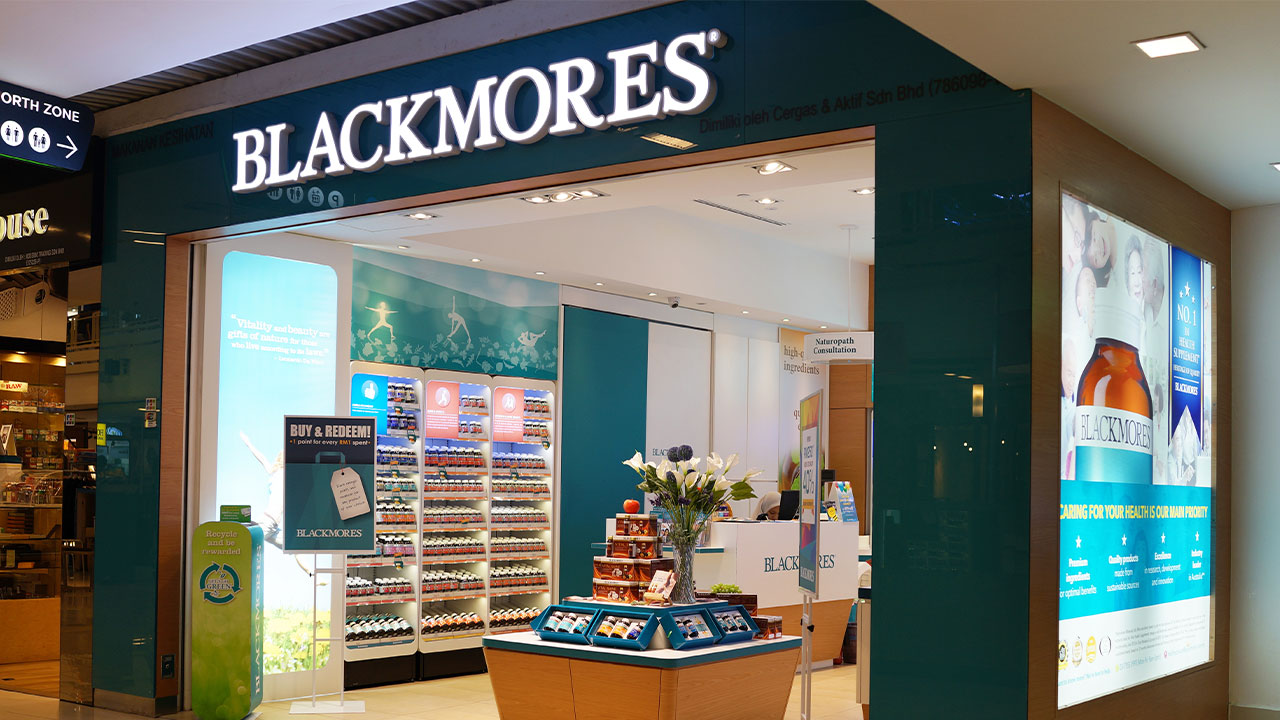- Health and vitamins company Blackmores (BKL) was down more than 15 per cent this morning after it downgraded its full-year profit guidance in the wake of the coronavirus
- Blackmores now expects to achieve a half-year net profit after tax of $18 million, down 48 per cent from the 2019 financial year figures
- The company could turn even less profit come its 2020 full-year report, expecting to generate between $17 and $21 million on the back of higher manufacturing costs
- Blackmores also anticipates challenges in its Chinese sales and supply system over the next few months
- Some of Blackmore’s e-commerce partners are cancelling or modifying their February stock orders
- After going into a trading halt on February 10, Blackmores has resumed trading this morning with shares now down 14.7 per cent and trading for $76.32 apiece
Blackmores (BKL) was down more than 15 per cent this morning after it downgrades full-year profits due to the coronavirus.
The company’s first-half statutory NPAT (net profit after tax) is forecast at $18 million, down 48 per cent on the $34.5 million generated in the previous period.
Blackmores achieved first-half revenue of $303 million which is also down slightly compared to the 2019 financial year.
It expects second-half revenue to be similar to that achieved, though the significantly higher costs associated with manufacturing and other factors will have a material impact on the FY20 result.
The company now expects full-year NPAT to be in the range of $17 to $21 million.
“We understand and acknowledge that shareholders will be bitterly disappointed with the financial performance of the business,” Chairman of the Board Brent Wallace said.
“We acknowledge that these results are completely unsatisfactory and we have much work to do to restore confidence in Blackmores,” he added.
Due to the coronavirus, Blackmores expects 2-3 months of challenges to its China sales and supply.
According to the company, some e-commerce partners have cancelled or modified February stock with a slowdown of China inbound and exporting freight.
This has made it difficult for Blackmores to serve the local market demand with their products.
Other factors that contributed to the lower than expected profits include the Braeside Manufacturing Site, the introduction of new labelling,
Having taken ownership and management of the Braeside production facility in October 2019, increased raw material costs and changes to the manufactured product mix have become evident.
As Blackmores produces more than 1000 individual products, changes to volumes and variety directly impacts EBIT (earnings before interest and taxes).
It is apparent that the forecasted product mix, volumes and material costs will have an estimated combined unfavourable impact of $9.5 million on the cost of goods sold in the second half.
“We are confident that the Braeside manufacturing plant will be a key competitive advantage for the Blackmores Group over time, with specific intellectual property and a highly skilled. workforce as well as several manufacturing licences and product registrations linked to the site,” CEO Alastair Symington said.
However, Blackmores warned that it could take at least two years to address the manufacturing challenges and changes and it still needs to make its final payment of $20 million regarding the facility in the second half.
Blackmores has also taken the opportunity to upgrade label designs for its brand in all markets after new production regulations were imposed by Australia’s Therapeutic Goods Administration (TGA).
“This is an ambitious but necessary piece of work. The outcome will not only meet new regulatory requirements but importantly will make it easier for consumers to better navigate our range,” Alastair commented.
The company has revised its forecast of costs associated with the transition with costs including managing trade inventories, completing the changeover before the September 2020 deadline and important customer events.
This program of work will have have an impact on EBIT of approximately $7 million, and this includes both the transition costs and estimated costs relating to the disposal of old labels on products.
In light of the significant deterioration in the outlook for the second half, the Board has made a decision not to pay an interim dividend (a distribution to shareholders that has been declared and paid before a company has determined its full-year earnings) to conserve cash for operations.
However, Blackmores is confident and optimistic about the future of the company.
After going into an unexpected trading halt on February 10, the company has resumed trading on the ASX this morning with shares taking an early dive.
Blackmores shares have recovered slightly and are now down 14.7 per cent and trading for $76.32 at 11:56 am AEDT.








